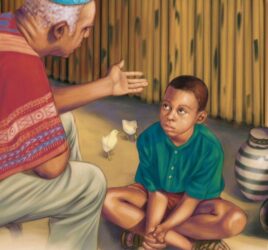
5. A Pressure Cooker for the Family System (MICN Missiology Series by Andrew Lupton)
A Pressure Cooker for the Family System
So what is life like in the cracks between cultures for our people group, the globally mobile? Notice how the 66.2 million expats in 2017 was made up of workers (71.1%), students (8.5%), retired expats (5.2%), intra-company transferees (1.0%), and trailing spouses and children (14.1%). This statistical breakdown reinforces my observation that life in the cracks as an expat can be terribly lonely. The disparity between individual workers (71.1%) and their trailing family members (14.1%) is telling. Granted, some workers are single, but many are leaving their families behind either voluntarily or involuntarily.
Families in Global Transition (FIGT) noticed that over a ten year period the number of families who relocated together for an expat assignment fell from 64% to 55%. During expat work assignments, almost half of the families involved are separated.1 I can attest from my time pastoring those who have left or those who are leaving, that this reality dangerously burdens the family system. The need for a church family while one is separated from family is pronounced.
Even when families are able to move together internationally, life in the cracks between cultures can still be quite taxing on the family system. Parents express rightful concern over the trauma their children endure assimilating to a new school, saying goodbye to friends, and making new friends they will have to leave in a couple of years.
Parents worry their children will fall behind academically. Indeed, 84% assume their children will not excel academically while abroad as they did in their passport country. It is not uncommon for third culture kids to have attended schools in five to seven different countries before they graduate high school. Prevailing wisdom and educational research for decades showed that mobility negatively affects learning. Recently, experts like Dr. Doug Ota have shown ways international schools and communities can capitalize on mobility to exponentially enhance learning.2 Nonetheless, experts estimate that by the time a third culture kid has turned 18, he or she has experienced the amount of trauma that a monocultural person will experience in an entire lifetime. This trauma stems from transition, but is most felt by relationships that constantly change. 3
I love that my son has enjoyed many best friends from very different backgrounds. Growing up, all my friends were like me, relatively homogenous mountain people from Western North Carolina. But my son’s best friends have included a Filipino-American from an international business family, a Chinese diplomat kid, the son of a DEA agent, the son of US Coast Guard pilot, and the Korean son of a Samsung employee. Most parents would be thrilled for a child to experience such diversity at a young age. But a list so diverse and beautiful packs hidden trauma. My son has painfully said goodbye to his best friend five years in a row. This is the compounding trauma that commonly accompanies a lifestyle of global mobility.
Marital strain is often reported for families living abroad. The research is fuzzy because of a fear of scaring away future expat assignees with negative data. Nonetheless, reports show that expat marriages are 49% more likely to end in divorce.4 I can attest to that reality, as I spend nearly 4-6 hours each week involved in marriage counseling with couples in the church and more broadly in the international community. Combine these realities and traumas with normal cultural adjustment, and life abroad can be a pressure cooker for the family system.
What an opportunity for the international church to incorporate the lonely into its family and to support globally mobile families! Is your church a welcome place for the lonely? Is it a place for families to belong? Is your church a place that takes the trauma of its third culture kids seriously? And for our purposes, can you communicate this pressure cooker experience for families to would-be partners and sending agencies? Can you tell the stories and cast vision to guide their hands to the pressure relief valve (healthy international churches) so that the globally mobile thrive?
Tune in next week as discuss whether global mobility is a gift or a liability.
Andrew Lupton
1 https://www.figt.org/relocation_trends/
2 Ota, Douglas W., Safe Passage, how mobility affects people & what international schools should do about it.
3 http://www.explorelifestory.com/relationships-attachment-trauma/ and from conversations with and the writings of Ruth Van Reken.
4 https://countrynavigator.com/blog/expatriates/trailing-spouse/



